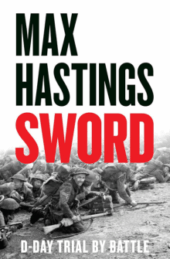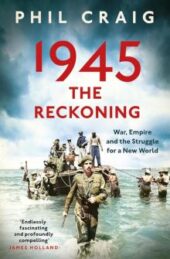When I was asked to review this book, I jumped at the chance. Although being ex-RAF, I had no knowledge of the events that took place in Iraq in May 1941, and was keen to learn.
Little, if anything, has been written about what became one of the most important operations of the early part of World War Two – the defence, by a handful of extremely brave pilots, of RAF Habbaniya, an RAF training base forty miles to the west of Baghdad. For five days between 2-6 May 1941, just thirty-nine pilots – instructors and trainees, flying obsolete aircraft – managed to keep at bay thousands of Iraqi soldiers who had surrounded the base.
The author has a personal connection to the events. Finding his father’s diaries as a child, the significance of what was written in them only became apparent as he grew older. What he discovered was a first hand account of the defence of RAF Habbaniya, and the campaign to suppress a coup by pro-German Iraqis, that threatened to hand Middle Eastern oilfields to the Nazis. Had these oilfields fallen into German hands, then Allied forces in North Africa would have lost much of their fuel supplies, and the war may very well not have been won.
Initially, British high command was somewhat hamstrung. With forces needed in North Africa and Greece there was a delay in sending reinforcements to relieve the base. When they eventually found the resources, they had to cross hundreds of miles of Iraqi desert from Palestine, an achievement in itself. Until then, it was up to the RAF, and the small number of ground defence troops, to hold out against a much superior force. With their numbers diminishing, as sortie upon sortie was flown through day and night, what these airmen achieved was nothing short of extraordinary. Unfortunately, many would pay the ultimate sacrifice.
The research that has gone into the writing of this book is remarkable. Using first hand accounts, including his father’s diaries, and records from the time, James Dunford Wood brings context to the narrative, explaining in detail, the origins of the conflict, including the roles of all the main protagonists, from both sides, political and military. He delves into the reasons for the ultimate British success (which includes one of the most audacious military bluffs I have ever read) and why, at the time, the achievements of these men was kept relatively quiet.
Just as a year before, when Churchill praised the valiant efforts of the RAF, as they repelled the Luftwaffe in the skies above southern England – the same sentiments could be said of the pilots of RAF Habbaniya in May 1941 – “Never in the field of human conflict has so much been owed by so many, to so few.”
The pace of the book is set just right. The narrative flows perfectly, giving the reader what is an informative and very enjoyable read.
A little gem of a book.
Highly recommended.
John R. McKay is the author of Arctic Convoy PQ18: 25 Days That Changed the Course of the War.






